Apr 20 2017.
views 2674A Land Of Prosperity Hidden Under A Battleground
The thirty year ethnic conflict victimised the entire nation, threatening the lives of many in addition to those who were killed or went missing. While many families in the Northern and Eastern Provinces still have hopes to see their loved ones someday, many others recall the unfortunate encounters they faced. During the war, Mavil Aru was an area that was highlighted since the LTTE closed down the sluice gates, in an attempt to intensify the situation. Without water, many lives were taken away as people couldn't take water for consumption or for farming activities which is their main occupation.
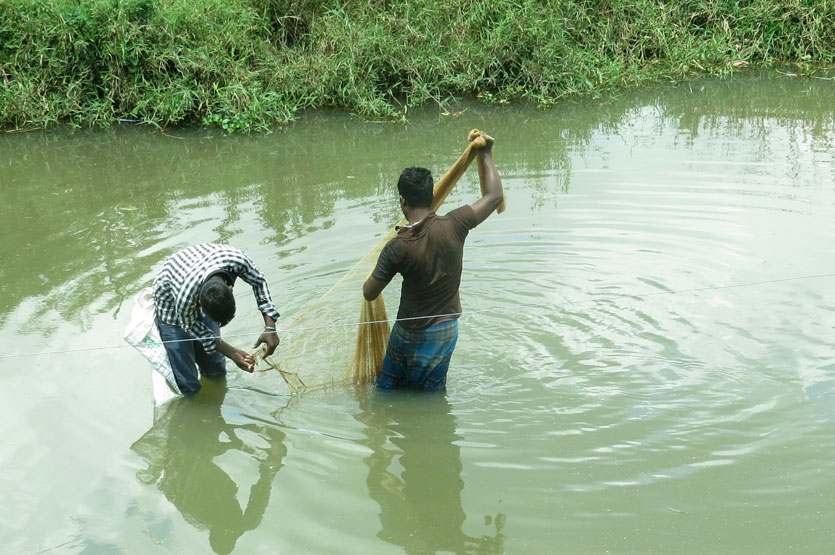
While on a recent visit to Jaffna, Life Online visited the families in Kumarapuram and Kiliveddy, two villages in the Mavil Aru area. When driving through parched terrains, we noticed acres of abandoned paddy fields, houses and lands. Although most buildings stood still amidst deserted land, people seem to have settled down in their own houses, some which were given to them by the then government and some which were built on their own. Dusty roads and the scorching heat wasn't a challenge for the people as we saw many of them fishing in the canal while on our way towards the interior.
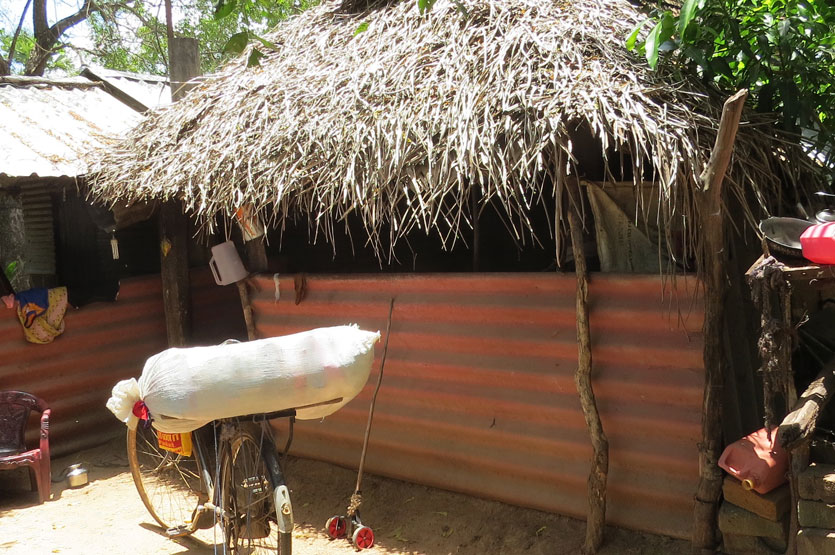
Once reaching Kumarapuram, we stopped by to speak to the people and we discovered many issues they face including the scarcity of water and the human-elephant issue. While recalling memories at the time of the war, these families have settled with hopes for a better future. With the assistance of our translator Rasika, we were able to communicate with the people and listen to their grievances.
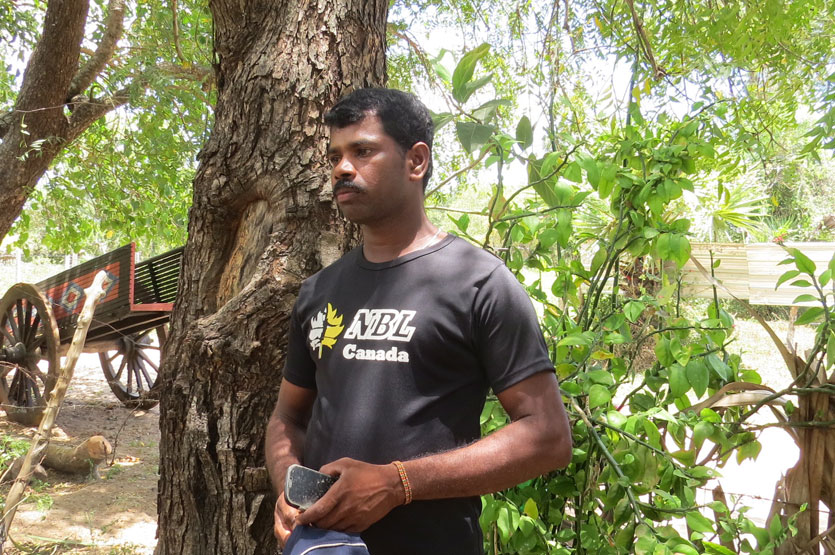
Nobody to give us a hand at a time of a drought: Lakshminadan
Lakshminadan Kangakaran recalls how their lands were taken away. "We had to live in temporary shelters such as camps, schools and even temples. The LTTE put up their camps in the surrounding areas and it was one big battleground. We didn't have water at the time and struggled a lot." Pointing at the thatched house he dwells in, Lakshminadan further said that he built his house on his own.
"At the time we had a huge house to accommodate our entire family. But now there are only three people living with me because my sons have gotten married and have shifted to other places. The government has so far given us minimum compensation. During an election, a so-called minister would come and make enough and more promises. During the drought we have a tough time trying to find water. But there's nobody to give us a hand."
The government needs to focus more on developing these areas: Gunasekaran
Recalling his memories about the gruesome ethnic conflict, Gunasekaran Kubendraraja said that he lost many of his family members as a result of the battle." Many people in this area fled leaving their houses and lands behind. Only a few of us returned with lost hopes. We can never forget what we went through and if the government is keen on developing this nation they could pay a visit to these areas and see what could be done. Our main source of income is farming but now even the human-elephant conflict has raised its head. Therefore we are not safe. We would like to request the government to listen to our grievances and give a hand to the people living in these areas."
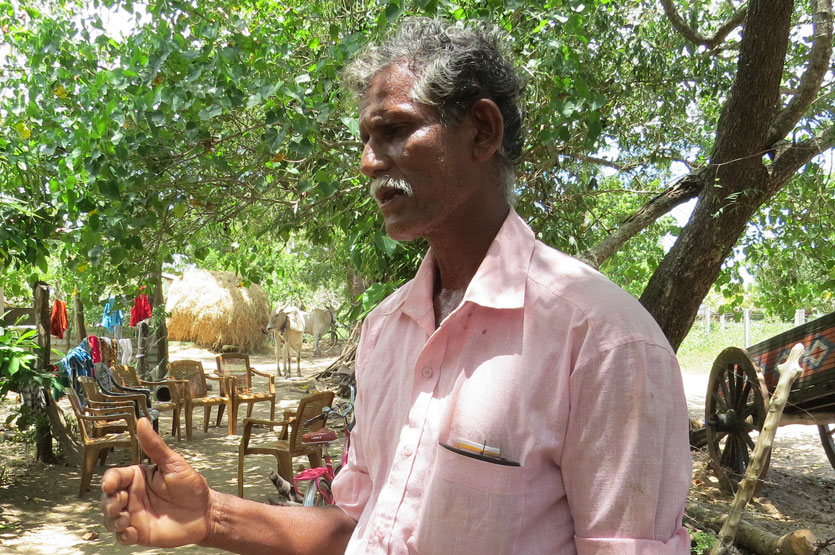
The human-elephant conflict too has started to bother us: Kandamani
Kandamani Yohanadan is another resident of the area who shared his views about the issues they face. "Water is one of the main scarcities in the area. We thrive from the water provided by the canal but sometimes this water is used for various purposes. The wells in the area are sometimes not purified and this gives rise to kidney problems and other health issues. If you take a walk around the area you would see wells covered in mosquito nets. But still there's dust in the water. This is one of the main issues that we face. On top of that the human-elephant conflict too has started to bother us during the recent times."
Although we tried speaking to a few more families in the area, they hesitated, refusing to recall memories of the gruesome past. During the drought, people find it quite challenging to draw water for consumption and for their daily activities as the Mavil Aru canal, which is the only source of water, dries up.
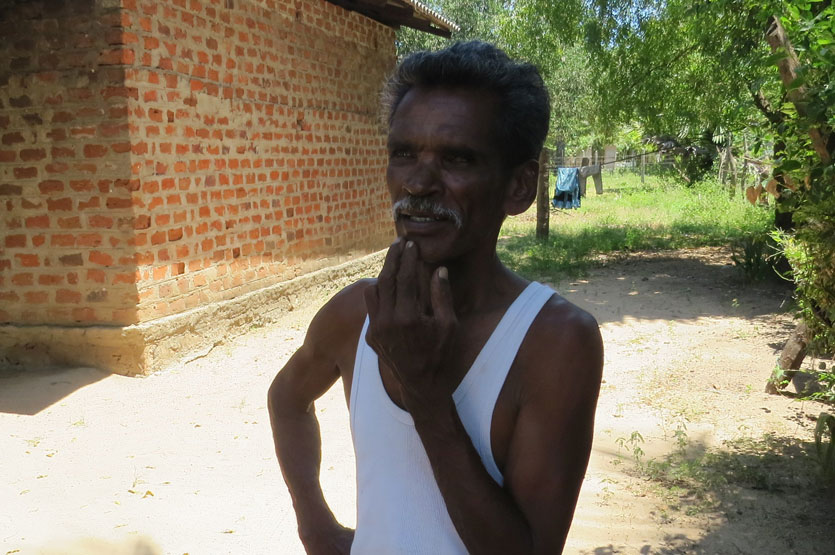
Justice needs to be served for war victims who were not guilty: Nagarasa
Our next stop was at Nagarasa's house, which has once been a place where the LTTE and the Army fought, taking away the life of one of his family members. "This incident happened back in 1996 where the Army was given orders to open fire in the event of a bombing in the vicinity. They didn't have any courtesy towards us. Many of my family members were shot dead." Showing us a scar on top of his left eye, Nagarasa says that he too survived a gunshot. "I ran for my life. I still remember that day and without doubt I should say that the Army treated us in a very inhuman manner. What I would like to request from the government is to serve justice to those who had to be victims of the war although they had clean hands. The Army too should be blamed for our losses."
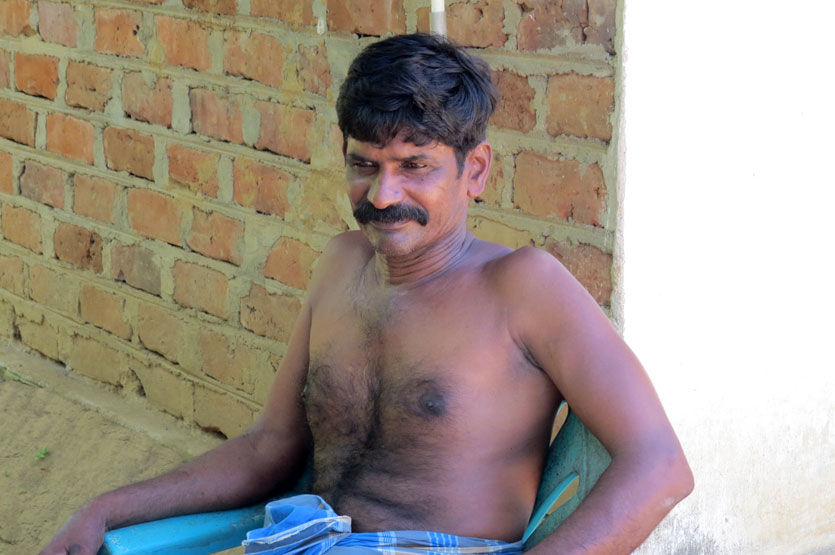
There's a major scarcity of resources in the area: Vinayagamurthi
We then reached Kiliveddy, another village that could only be reached by a gravel road. Once we stepped out, people reluctantly gazed at us to identify who we were. Rasika tried convincing few people to share their thoughts with us but failed. We then reached Vinayagamurthi's house. After much hesitation, he agreed to speak to us but his fear was such that he even forgot to open the gate for us. It wasn't the best welcome one could receive but we still tried our luck. He brought chairs outside the premises and gestured for us to take our seats.
Speaking about his experience, Vinayagamurthi said that his hometown is Kiliveddy. "But we had lands in Sampur which were forcibly taken away by the Army. I didn't lose anybody to the war but there is a major scarcity of resources. Some people in this area have deeds to their lands and some don't. There are many unemployed individuals in this area including my son. If they are given a chance by the government we would be grateful because the future lies in their hands."
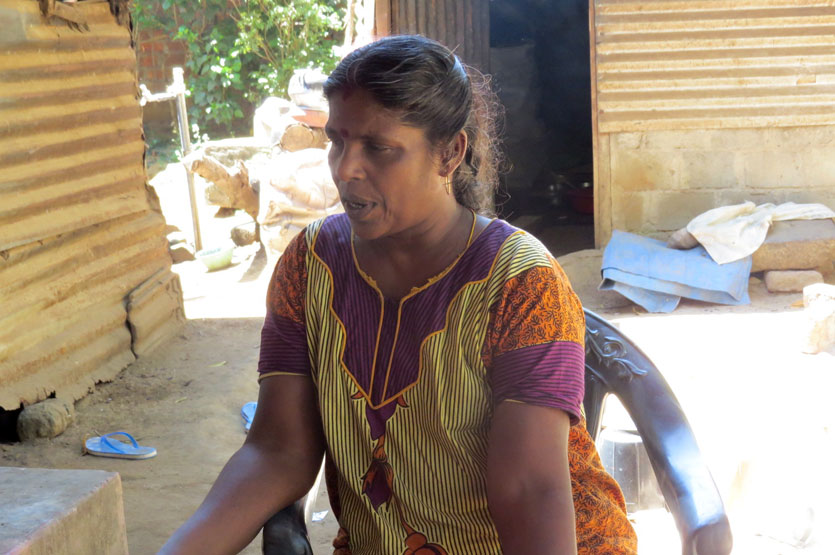
The water issue in the area is one major challenge: Rajeshwari
Our final stop was at Rajeshwari's house. Her story highlighted another issue in the area. Although Kiliveddy is her hometown, she still resides at her grandfather's house. In her comments, Rajeshwari said that their life was made miserable during the days of the war.
"Old people were beaten up, the Army took people away and there were many other incidents which we have encountered. The LTTE may have had different agendas, but we suffered immensely. Sometime back we feared whether another war would break up but that fear has now faded away. I'm a mother of six children but three of them were victims of Chronic Kidney Disease and they passed away. The water issue in the area is one major challenge we need to overcome. My son passed away this February and we tried seeking for help in all possible ways. We even circulated his details via social media but it wasn't of any use. Therefore that is one issue that the government has to focus on because we have no other alternative."
PHOTOGRAPHS courtesy Lanka Pradeep
6 Comments
S B Lokuge says:
Apr 21, 2017 at 04:16 amHow can they expect support from the government when they never support any government and support their Tamil politicians who continued to cry for federalism and eventually separatism? Tamils should learn to accept they are Sri Lankans and not support their racist political leaders who live in luxury with thee Sinhalese happily in Colombo.
vithura says:
Apr 25, 2017 at 06:30 pmIf you cared to look back at the political history of this country you will realise that just as Sinhalese, Tamils too have been patriotic of this country. All anti-Tamil riots beginning from 1956 were carried out on the watch of Govt's headed by Sinhalese leaders, now tell me who the real racists were.
Liyanage says:
Apr 21, 2017 at 02:17 pmOrdinary Srilankans Tamils/Sinhalese/Muslims suffered a lot in a war which should have never happened and for which Tamils/Sinhalese/Muslims should all be ashamed . Rassika should have taken them to houses of Sinhalese and Muslims too
sharm says:
Apr 25, 2017 at 04:59 pmI was just thinking was it only tamils who were residing in these areas and not a single Sinhalese soul???? and these tamil people are always supporting their own tamil politicians who are not from the main 2 parties but separatist supporting tamil parties. but always pointing fingers to the government for not compensating.. what a funny expectation..
Independent says:
Apr 21, 2017 at 03:43 pmWe are trying to integrate all ethnics and improve harmony. Why trying to bring up old scars by these kind of articles?
Ariyadasa says:
Apr 23, 2017 at 08:31 pmLet the Govt assist them in whatever way it can. They too are citizens of this country.